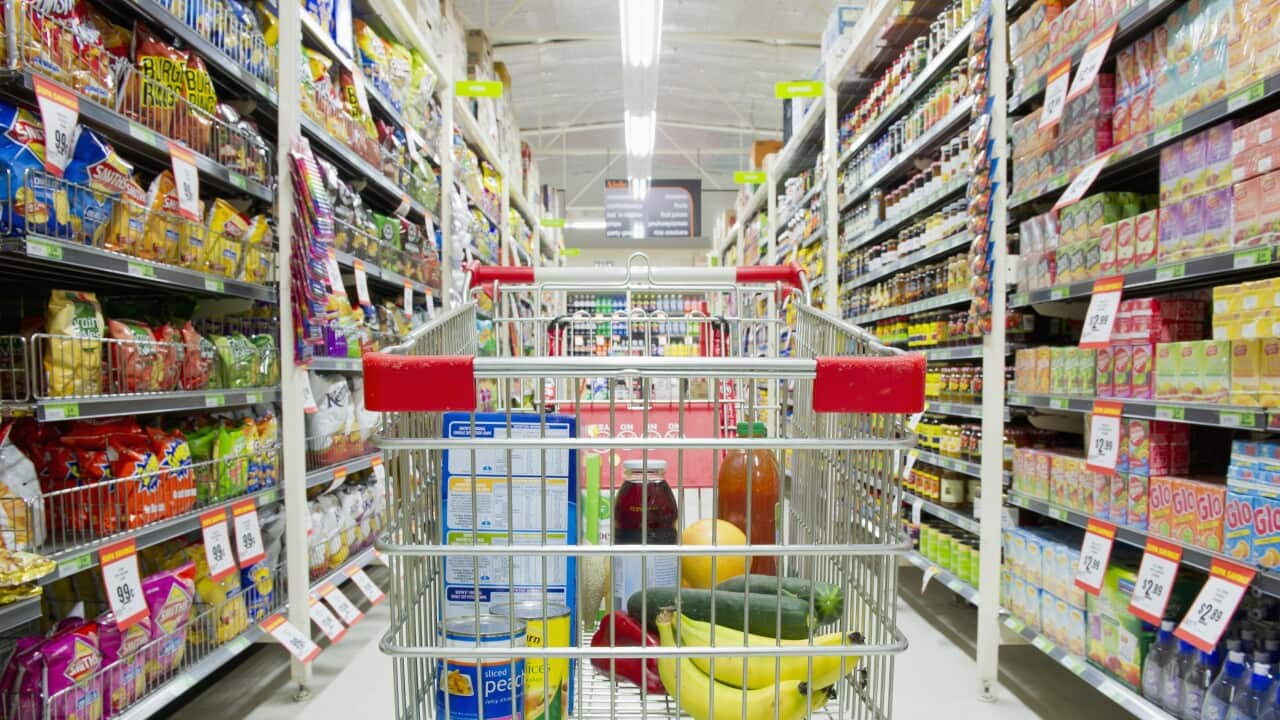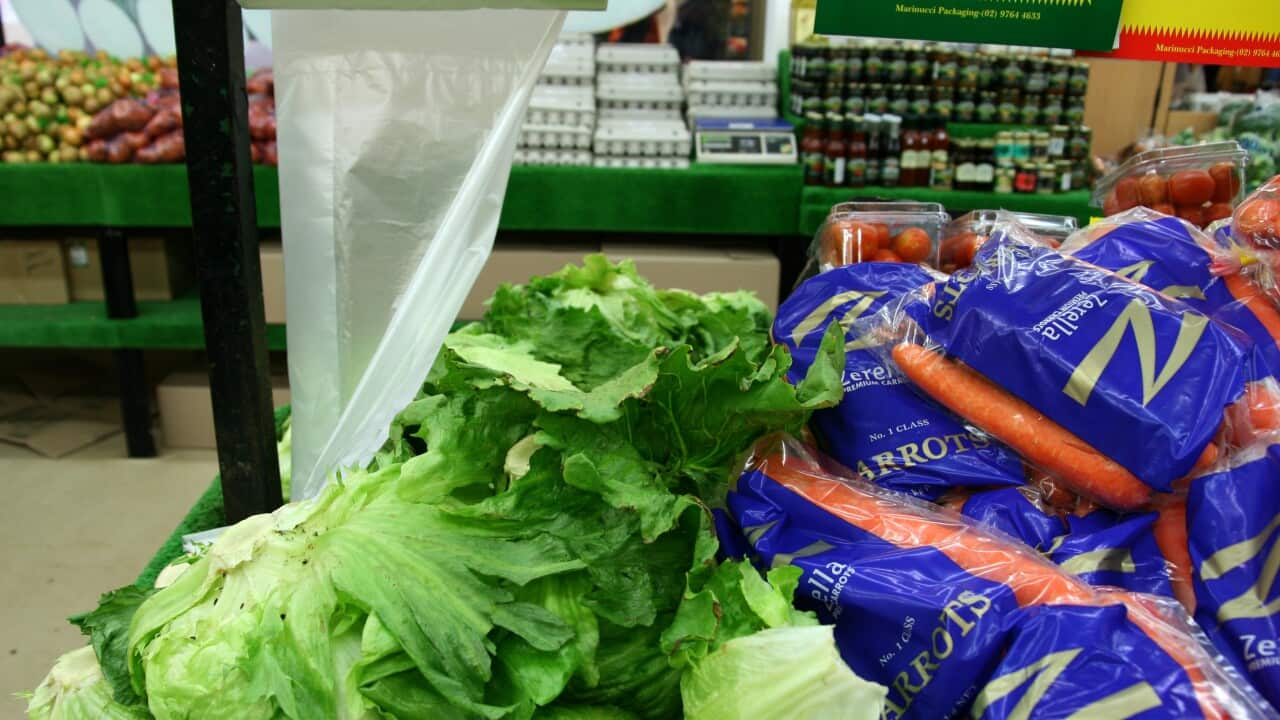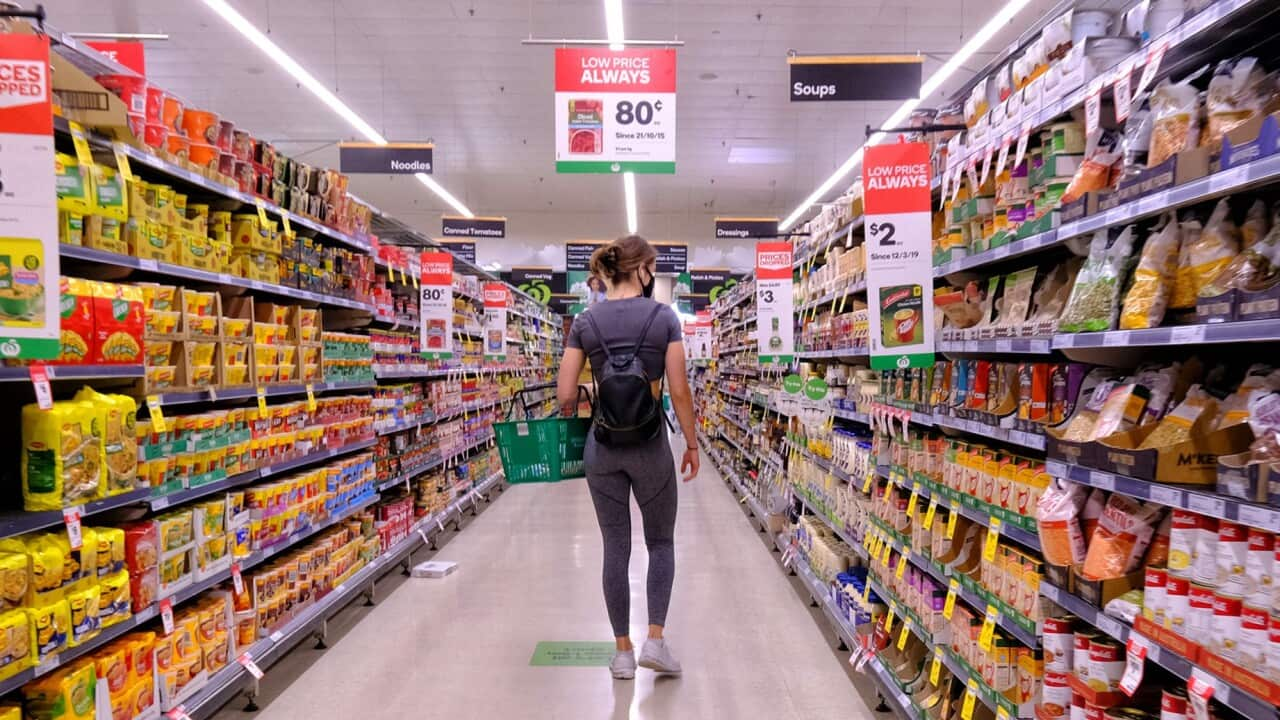Key Points
- The ACCC is examining supermarket price-setting practices, retail competition, supply chains and profit margins.
- Suppliers and smaller operators accused Coles and Woolworths of practices that could stifle competition.
- The ACCC's final report will be handed down by late February.
Australia's two major supermarket brands came under scrutiny across two weeks of public hearings looking into the industry's practices.
While the hearings, held as part of looked at the sector as a whole, the two major players were a big focus.
The ACCC is examining , retail competition, supply chain concerns and the profit margins of Australia's supermarkets.
Together Coles and Woolworths control 67 per cent of the national market in what the ACCC described as an as an "oligopoly".
Selling at a loss
The head of national grower’s group AusVeg was reported to have told the inquiry such as carrots had been used by supermarkets as "clickbait" as a way to get people into stores.
Lucy Gregg told the inquiry "Sometimes [supermarkets] sell below what they've bought it for, but also at the same time the grower is often selling below the cost of production as well," she said, according to the ABC.
Supplier holidays
Coles and Woolworths each denied they "sat out" fresh produce suppliers who challenged their pricing.
The ACCC asked both companies about a practice it had been told was referred to as a "supplier holiday".

Woolworths denied using a tactic known as a "supplier holiday" where a supplier not content with a price offered by the supermarket for their produce would miss out on business for a period. Source: Getty / James Gourley
Asked if Coles used a supplier holiday tactic, the company's chief commercial officer Anna Croft said: "No, it's not a term I've heard used in the business".
And Woolworths said suppliers with concerns were able to register concerns through the company's integrity policy.
IGA supplier alleges land banking
The inquiry put allegations of land banking to both Coles and Woolworths, with executives from both chains denying they used the practice of buying sites to block competitors moving into the same location.
The ACCC said it received submissions from IGA supplier Metcash and peak body NSW Farmers, concerned about the alleged practice.
In its submission published in the commission's interim report, Metcash said "Coles and Woolworths - which dominate two-thirds of the grocery market - can afford longer development timelines than independent grocers and snap up land they may not develop for some time."
The ACCC referred to a Woolworths document that described some of its properties as "sites held for strategic reasons" with no plans for development.
While, Coles property manager Fiona Mackenzie revealed the company held 42 freehold sites across the country, with 17 not yet subject to development applications.
A Woolworths spokesperson said it owned different sites for "different reasons", while a Coles representative said once the business identified gaps in the market, it could take up to seven years to procure a site and plan a development.
Aldi at the inquiry
Representatives for Aldi told the inquiry that existing tenancy agreements with other supermarkets often stifled its expansion into new shopping centres.
According to national buying managing director Jordan Lack, that denied more customers the opportunity to shop with the brand and save money, as it benchmarked between a 15 and 20 per cent gap with its major rivals.

Germain retailer Aldi accounts for 10 per cent of all supermarkets in Australia, and is the third largest operator. Source: Getty / James Gourley
Representatives of the German multinational said a smaller, more effective range of items allowed it to beat the industry's power-players on price.
"We are looking for our product range we stock to be as efficient and as effective as possible ... we don't want to have a long tail of products within our range," Lack said.
Crowding out competition?
Coles denied it creates its own brands for products to control even more market share.
While not alone in having home brands, the supermarket giant's representatives were grilled on its range of in-house products, which make up one-third of the company's more than $40 billion in annual sales.
Consumer group Choice earlier told the inquiry the practice could increase choice and lower prices in the short-term, however it could crowd out competitors in the long run and leave Coles products as the only, more expensive option.

During the ACCC public hearings Coles denied it "sits out" fresh produce suppliers who challenge the supermarket giant's pricing. Source: Getty / Kokkai Ng
"Our view would be the business model that we have will have an important role for both proprietary products and own-brand products for the foreseeable future," Weckert said.
Executives also denied a lack of clear labelling to show a product was Coles-owned was a transparency issue, because the supermarket's name would still be listed somewhere on the item.
Further considerations
The for allegedly misleading customers with fake or misleading discounts.
Both grocers deny the allegations and say the cases are misconceived.
The inquiry's final report will handed down by 28 February.
This inquiry is not the first to put scrutiny on Australian supermarkets, earlier this year .
With additional reporting by the Australian Associated Press.



